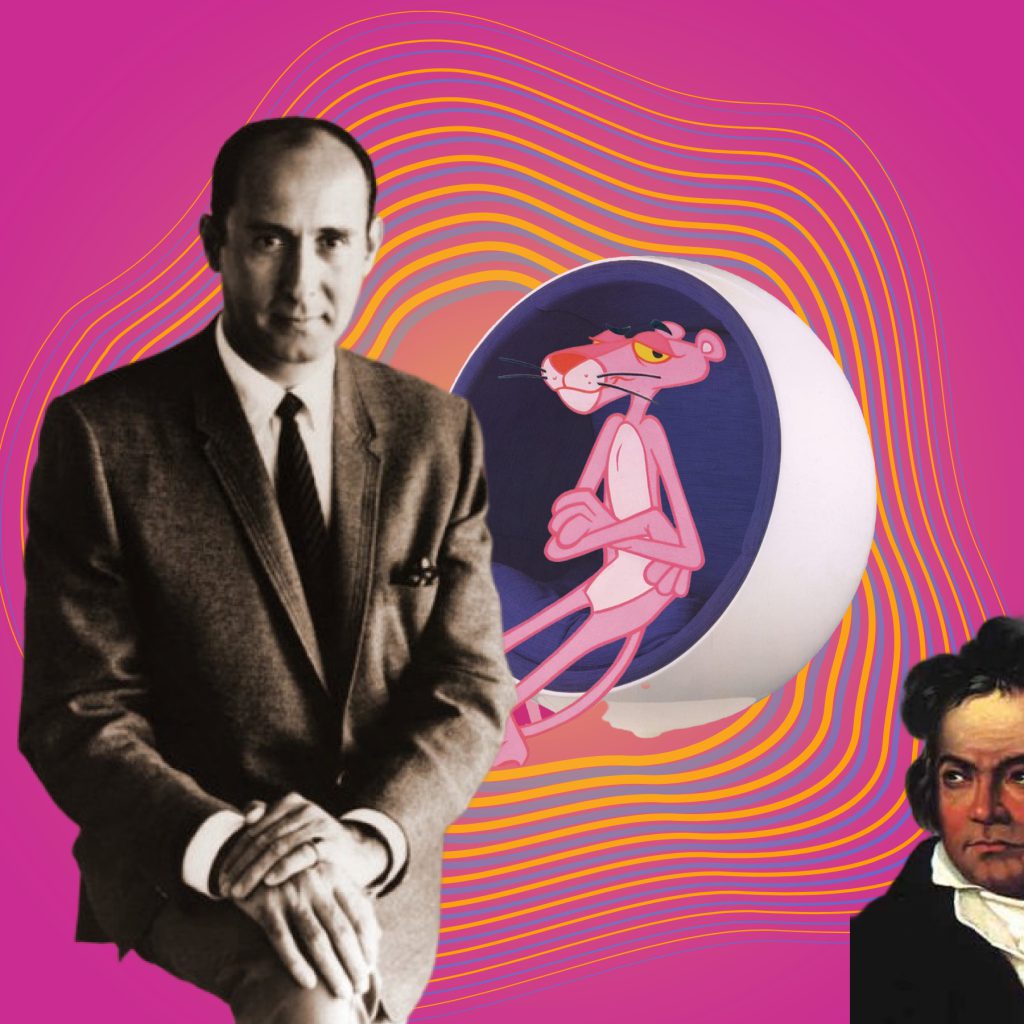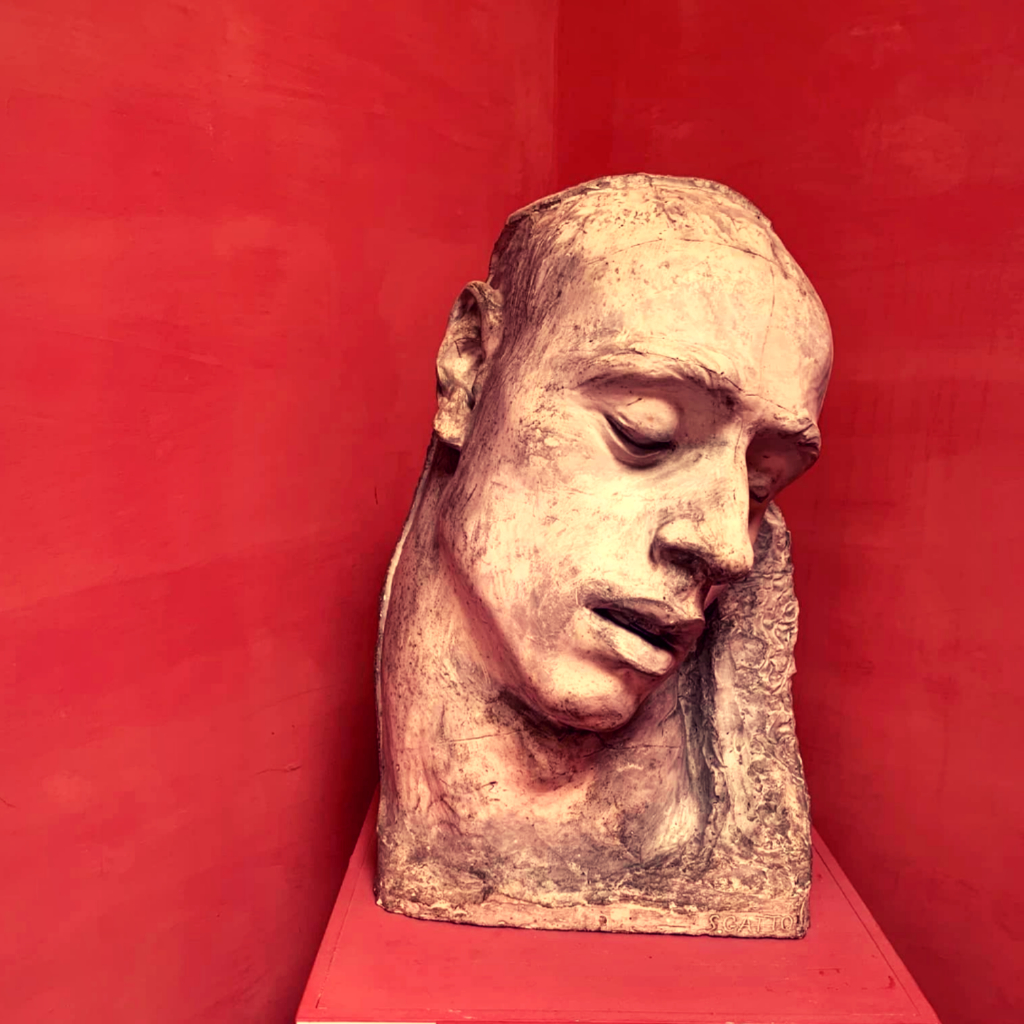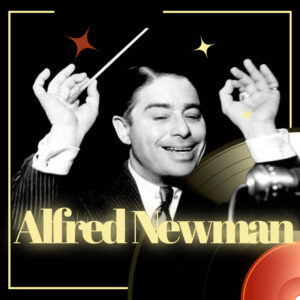
Mancini’s career started in 1946 when he took a position as a vocal coach, pianist, and arranger for the Glenn Miller Orchestra, led by Tex Beneke. Mancini’s work with the Glenn Miller Orchestra was transformative for him both professionally and personally. The band included a thirteen-piece string section as well as a strong brass section, which challenged him to create balanced sounds and develop new techniques for orchestrating finely-crafted works for full ensembles. He was also introduced to post-war jazz music. This influence is found in his works of the 1950s and 1960s, including his themes for The Pink Panther and the television series Peter Gunn (1958–1961), which exhibit the use of jazz harmonies and popular styles of the time.
In 1952, Mancini joined Universal Studios, where he composed music for over 100 films. In 1960 he left Universal, resuming work as an independent composer and arranger. Throughout his career, Mancini collaborated with renowned film director Blake Edwards, orchestrator Jack Hayes, composer-lyricist Leslie Bricusse, and other prominent figures in the music and film industries. Mancini became one of the most prolific and successful film and television composers in history, receiving four Academy Awards, 20 Grammy Awards, one Golden Globe Award, and two Emmy Award nominations.
The Mancini filmography is one of the most extensive and honored in history including scores for films like The Glenn Miller Story, The Benny Goodman Story, Touch of Evil, Breakfast at Tiffany’s (1961 Academy Award for Best Score), High Time, Bachelor in Paradise, Charade, Man’s Favorite Sport, Days of Wine and Roses, The Pink Panther, A Shot in the Dark, The Great Imposter, Mr. Hobbs Takes a Vacation, Hatari, Experiment In Terror, Soldier in the Rain, Dear Heart, The Great Race, Arabesque and Moment to Moment. Mancini also wrote the background scores for the television shows Peter Gunn (winning the Grammy award for best score in 1958) and Mr. Lucky.



